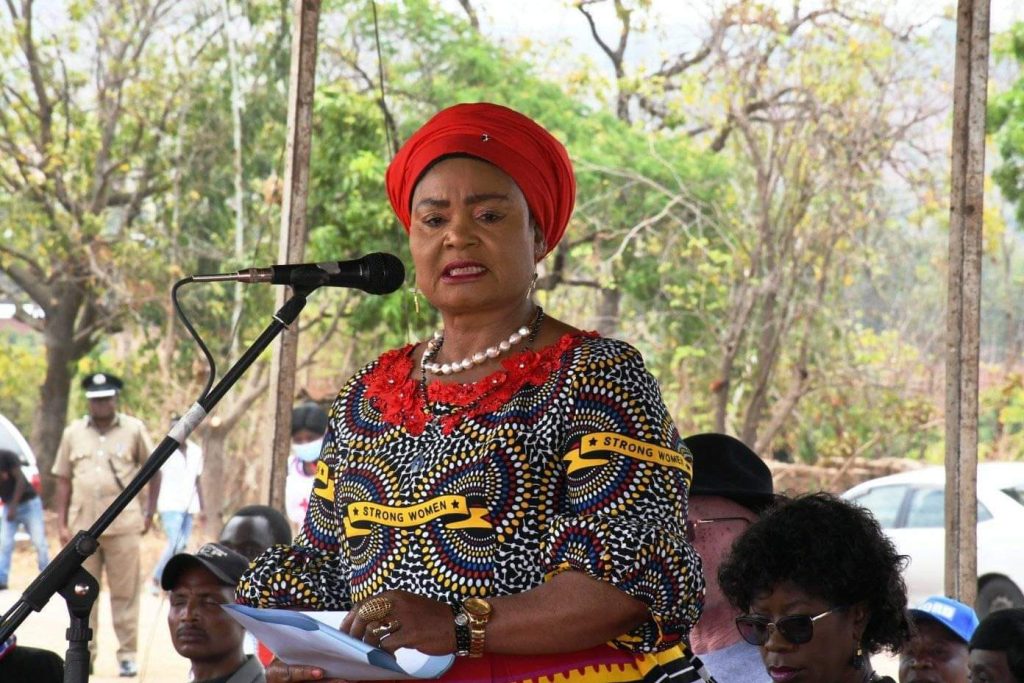Senior Malawi politician accused of plotting to kill president
3 min read

Patricia Kaliati, a prominent member of Malawi’s opposition party, has been charged with plotting to assassinate President Lazarus Chakwera. Kaliati, the secretary general of the UTM party, was arrested last week under suspicion of “conspiring with others to commit a serious offense.”
During her court appearance on Monday in Lilongwe, Malawi’s capital, the 57-year-old politician remained silent, but her attorney asserted her innocence, as reported by local media. The specifics of the alleged assassination plot have not been extensively disclosed, leading many opposition figures to claim that the charges are politically motivated. Supporters of the UTM gathered outside the court, expressing their discontent with the government through protest songs.
Inside the courtroom, the prosecution revealed that Kaliati allegedly had two accomplices, who are currently evading capture. Despite the serious nature of the allegations, the magistrate ruled that Kaliati could be released on bail as investigations continue, while the state prosecutor had sought to detain her for an additional week.
Malawi’s police force has stated that they are operating within legal parameters and assured that Kaliati’s rights will be upheld during this process.
The UTM party was part of the Malawian government until June, when it withdrew following the tragic death of its leader, Saulos Chilima. Chilima, who was serving as vice president, died in a plane crash while flying in a military aircraft over a northern region of the country. His unexpected passing significantly impacted the party and the political landscape in Malawi.
In the aftermath of Chilima’s death, Kaliati has positioned herself as a candidate to succeed him as the leader of the UTM, with aspirations to challenge President Chakwera in the upcoming presidential election. Known for her candid and forthright demeanor, Kaliati began her career as a primary school teacher before transitioning into politics.
The allegations against her have heightened political tensions in Malawi, where government-opposition relations are already strained. The accusations are not just a legal issue; they reflect deeper divisions within the political fabric of the nation. Critics argue that the charges could be a strategic move by the ruling party to undermine the opposition, particularly as elections approach.
Kaliati’s supporters view her as a vital figure in the struggle for democracy and political reform in Malawi. They contend that the legal actions against her are an attempt to silence dissent and maintain control over the political narrative. The UTM party, despite its recent withdrawal from the government, continues to advocate for change and accountability.
As the investigation unfolds, many are watching closely to see how it will impact the political landscape in Malawi. The interplay of law, politics, and public sentiment could shape the course of the upcoming election and influence the broader discourse around governance and human rights in the country.
Political analysts suggest that Kaliati’s case could galvanize support for the UTM, particularly among those disillusioned by the current administration. The party’s response to these charges will be critical as they prepare for the electoral battle ahead. With the presidential election on the horizon, the stakes are higher than ever for both the ruling party and the opposition.
Kaliati’s case also highlights the complex relationship between political figures and law enforcement in Malawi. While the police assert they are acting within their rights, the perceptions of political motivations behind the charges could lead to increased scrutiny of their actions.
As the nation grapples with these developments, the situation remains fluid, and the implications for Malawi’s democracy will likely be felt in the months to come. The forthcoming election will not only determine the political leadership but also reflect the public’s response to the challenges facing the nation.